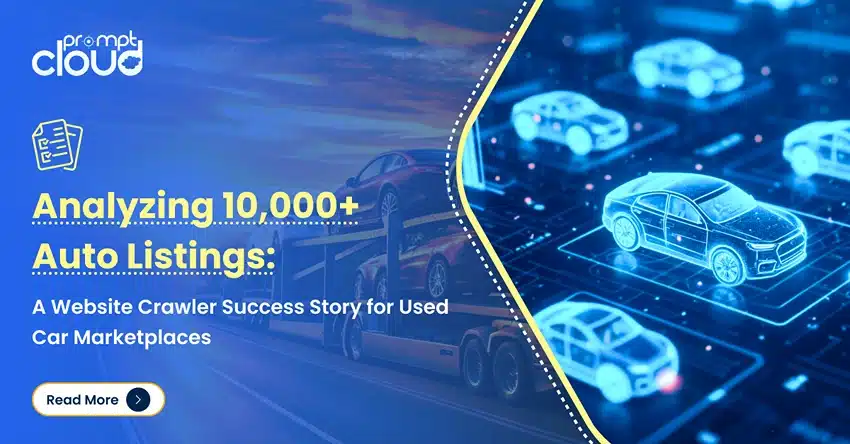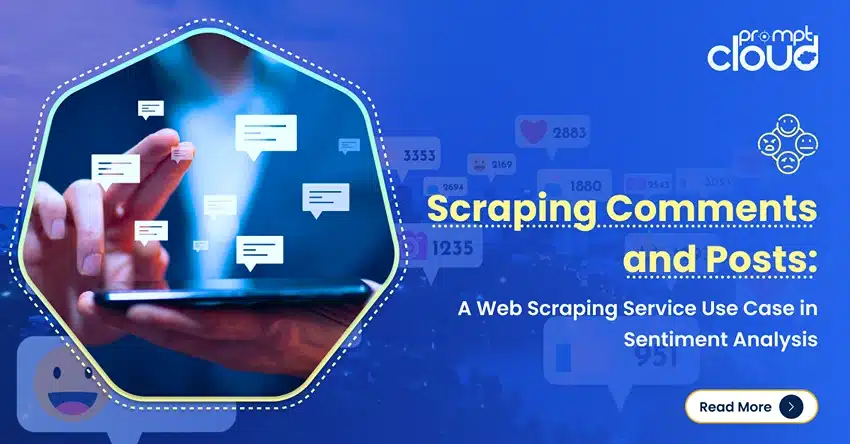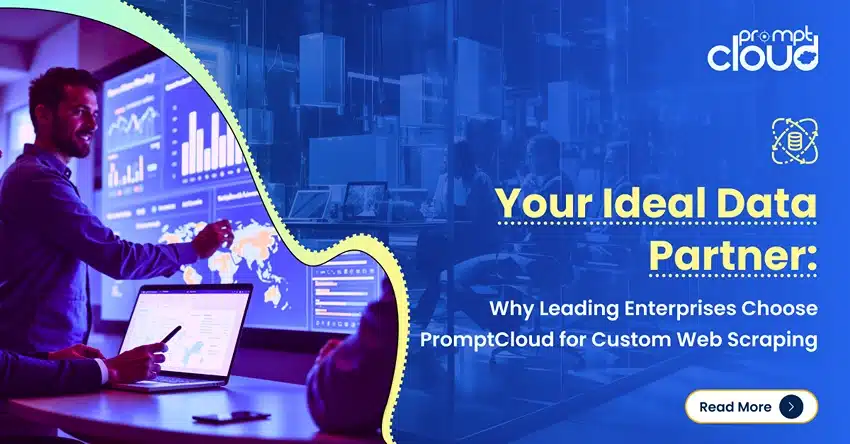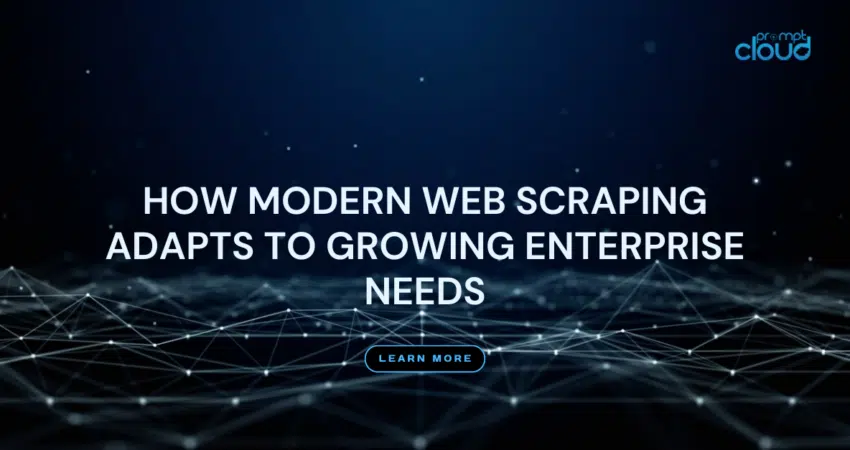
In an era where data is the new oil, web scraping stands out as a vital tool for businesses looking to extract valuable insights from the vast expanse of the internet. For enterprises, leveraging web scraping isn’t just a convenience; it’s a necessity for informed decision-making and staying ahead in the competitive market. This blog delves into how modern web scraping solutions, like those offered by PromptCloud, are evolving to meet the growing and diverse needs of enterprises.
Understanding Web Scraping
Web scraping, also known as web data extraction, is a process where software is used to extract information from websites. This technique has become a cornerstone in the data-driven decision-making process of modern enterprises. Here are some key points to consider:

Source: www.learn.g2.com
Definition and Basic Mechanism
- Automated Data Collection: Web scraping uses bots or web crawlers to automatically navigate and extract data from websites.
- Structured Data Extraction: It involves converting unstructured web content (HTML, JavaScript) into structured data (like spreadsheets or databases).
Applications Across Industries
- Market Research: Businesses use web scraping to gather data on market trends, consumer preferences, and competitive strategies.
- Price Monitoring: E-commerce and retail companies frequently scrape competitor websites for pricing data to stay competitive.
- Lead Generation: Sales and marketing teams scrape online sources to gather potential customer contacts and leads.
- SEO Optimization: Extracting data from search engines and competitor websites to improve search engine rankings.
Techniques and Tools
- Simple Scraping to Advanced Crawling: Techniques range from simple data extraction using Python libraries (like BeautifulSoup or Scrapy) to complex crawling of dynamic websites using headless browsers.
- APIs vs. Custom Scraping: Some sites offer APIs for data extraction, while others require custom scraping setups.
Challenges in Enterprise-Level Web Scraping
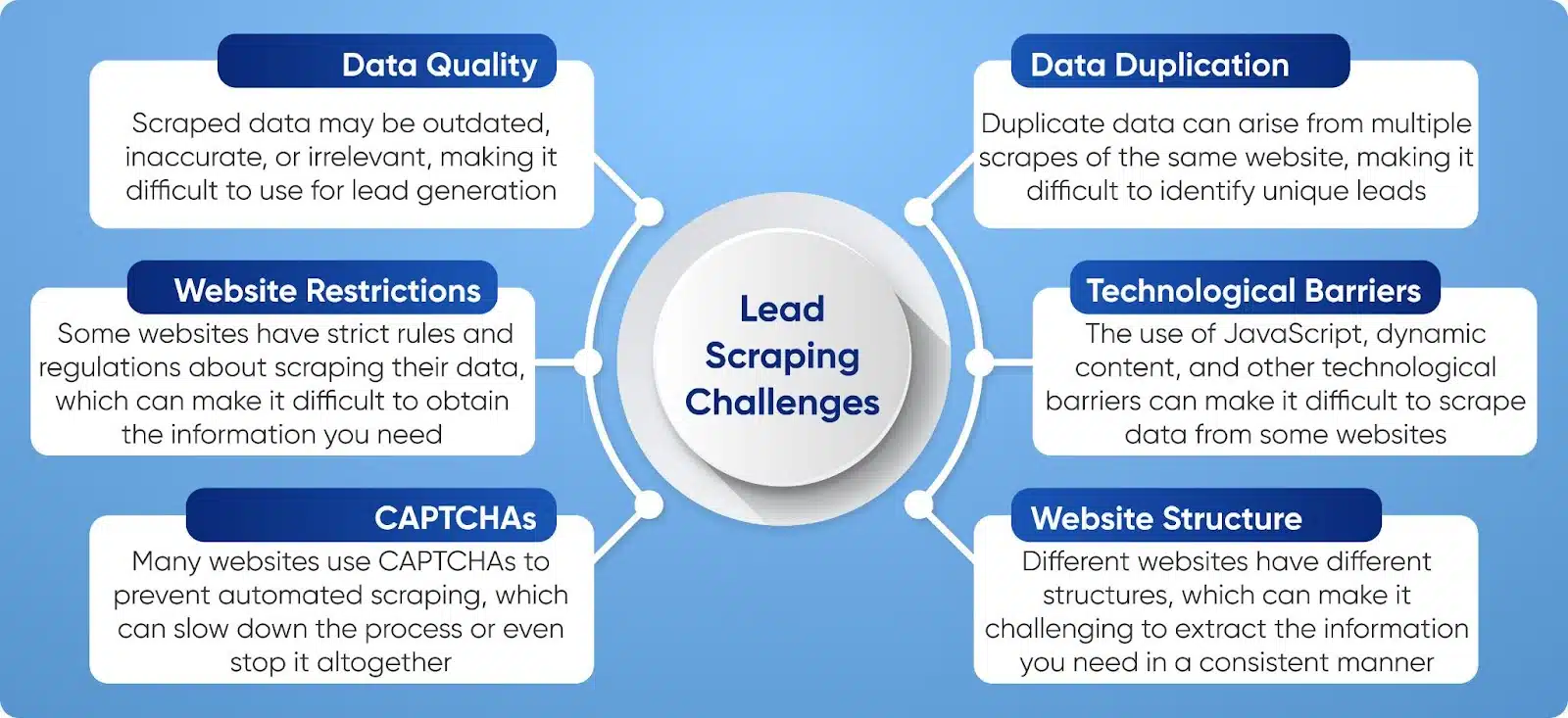
Source: scrape-it.cloud
While web scraping offers immense benefits to enterprises, it also poses significant challenges, especially when scaled up to meet the demands of large businesses. Here’s a closer look at these challenges:
Scale and Complexity of Data
- Handling Massive Volumes: Enterprises often need to scrape data from thousands of web pages, requiring robust infrastructure to handle such scale.
- Complex Data Structures: Websites with nested and complex structures make data extraction challenging, requiring sophisticated parsing algorithms.
Data Quality and Reliability
- Maintaining Accuracy: Ensuring the data scraped is accurate and reflects the most current information available on the source websites.
- Dealing with Incomplete or Inconsistent Data: Web data is often unstructured and can be inconsistent, making it challenging to standardize and use effectively.
Technical Barriers
- Dynamic Content: Many modern websites use JavaScript and AJAX to load content dynamically, posing a challenge for traditional scraping tools.
- Anti-Scraping Technologies: Websites may employ techniques like CAPTCHAs, IP blocking, or rate limits to prevent scraping, requiring sophisticated countermeasures like rotating proxies.
Legal and Ethical Considerations
- Compliance with Laws: Navigating various legal frameworks, such as copyright laws and data protection regulations (like GDPR), is crucial.
- Ethical Scraping Practices: It’s important to respect the privacy and rights of website owners and users, which includes adhering to the website’s robots.txt file and terms of service.
Integration with Existing Systems
- Seamless Integration: Efficiently integrating scraped data into existing business systems (like CRM, analytics tools) without causing disruptions.
- Data Management: Managing the storage, updating, and retrieval of large datasets in a way that aligns with the company’s existing data infrastructure.
Resource Allocation and Cost Management
- Infrastructure Costs: The cost of servers, proxies, and other resources needed for large-scale scraping can be significant.
- Resource Intensive: Requires continuous maintenance and updates to scraping scripts and infrastructure, demanding dedicated personnel and resources.
Scalability and Flexibility
- Adapting to Changing Requirements: As businesses grow and evolve, their data needs change, requiring scalable and flexible scraping solutions.
- Rapid Response to Source Changes: Websites frequently update their layout and structure, necessitating quick adaptations in scraping strategies.
Evolution of Web Scraping Solutions
Modern web scraping solutions have evolved significantly, incorporating advanced technologies like AI and machine learning. Customization and scalability are at the forefront, ensuring that solutions like those provided by PromptCloud are tailored to specific enterprise requirements and can scale according to business growth. Integration with existing enterprise systems is also a key factor, allowing businesses to seamlessly assimilate new data into their workflows.
Integrating PromptCloud’s Solutions
In the context of these evolving needs, PromptCloud emerges as a leader in providing state-of-the-art web scraping solutions tailored for enterprises. Our services are designed to seamlessly integrate with your business processes, ensuring minimal disruption and maximum efficiency. Whether it’s real-time data extraction or handling large-scale data requirements, PromptCloud’s solutions are engineered to deliver precision, scalability, and reliability.
Conclusion
As businesses continue to navigate the data-driven world, the role of efficient, scalable, and legal web scraping solutions becomes increasingly crucial. Enterprises seeking to harness the power of web scraping need partners like PromptCloud, who not only understand the intricacies of data extraction at scale but also offer customized solutions to meet specific business objectives.










